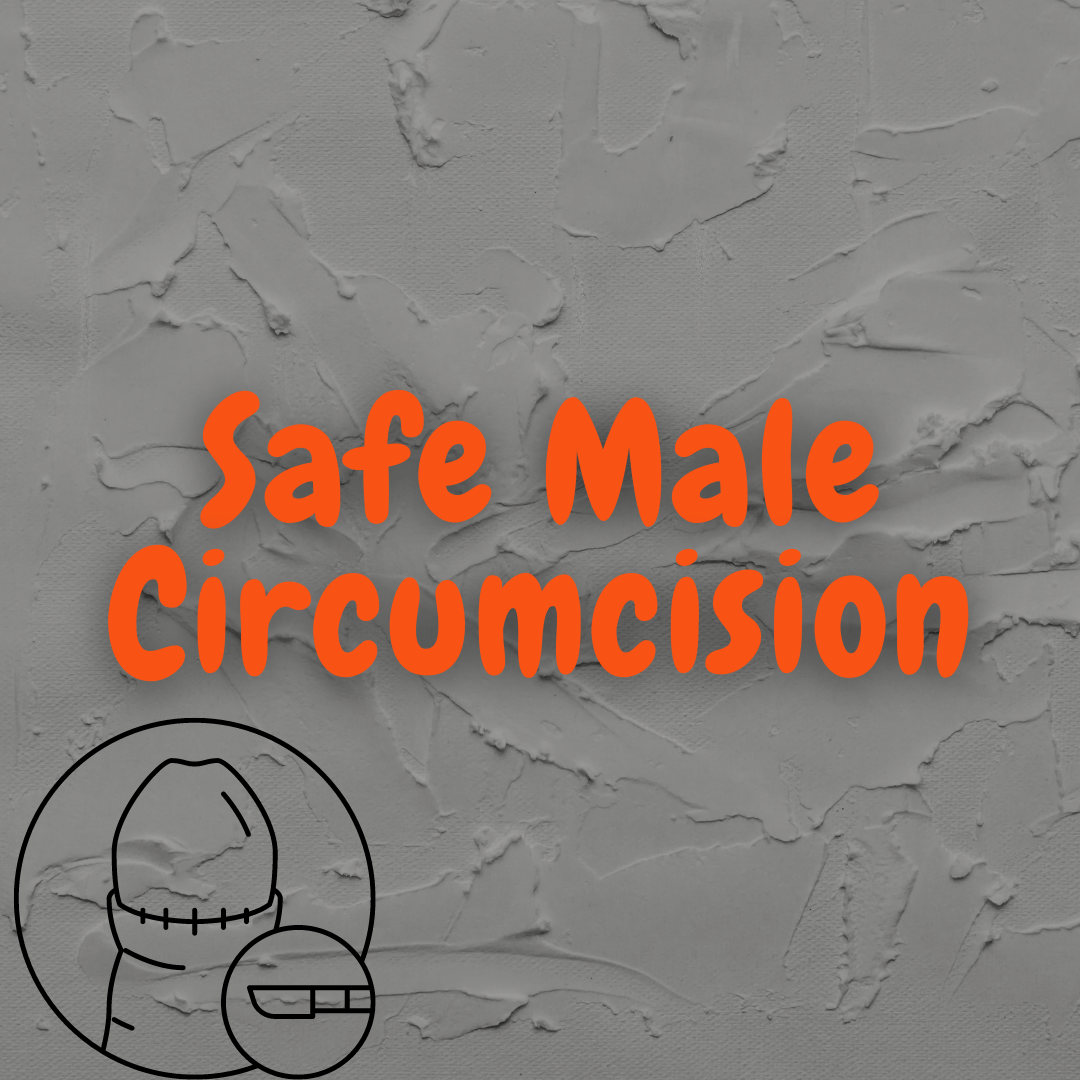
FAQs About Safe Male Circumcision
What is male circumcision?
Male circumcision is a surgical procedure that removes the foreskin covering the tip of the penis.
Is circumcision safe?
Yes, when performed by a trained medical professional, circumcision is generally safe. Risks include minor complications like bleeding, infection, and pain, which are usually treatable.
What are the benefits of circumcision?
- Reduced risk of urinary tract infections (UTIs) and certain sexually transmitted infections (STIs), including HIV.
- Easier to maintain genital hygiene.
- Lower risk of penile conditions such as phimosis (enclosed foreskin) and balanitis (irritation of the glans penis)
What are the risks of circumcision?
While generally safe, possible risks include:
- Bleeding
- Infection
- Pain
- Rare complications such as injury to the penis
How is the procedure performed?
The procedure is quick and can be done in a doctor’s office or hospital. Local anesthesia is used to numb the area, minimizing pain during surgery.
What is the recovery like?
Recovery typically takes about one to two weeks. During this time, you should:
- Keep the area clean and dry.
- Avoid strenuous activities.
- Take pain relief medication if needed.
- Monitor for signs of infection.
Can adults be circumcised?
Yes, circumcision can be performed at any age. Adults should discuss with their healthcare provider to understand the procedure, recovery, and benefits.
Is circumcision painful?
Local anesthesia (numbing medicine) is used during the procedure to minimize pain. Some discomfort may occur during recovery, but pain relief medication can help manage it.
Does circumcision affect sexual function?
Studies generally show that circumcision does not negatively impact sexual function or satisfaction.
Can circumcision prevent STIs?
Circumcision can lower the risk of certain STIs, including HIV. However, it does not replace the need for safe sex practices, like using condoms.
How does circumcision reduce the risk of HIV?
Circumcision removes the foreskin, which can be more susceptible to tears and infections, thereby reducing the risk of HIV transmission during heterosexual intercourse.
Note: Circumcision lowers the risk for contracting HIV by 58%
Is circumcision a replacement for other HIV prevention methods?
No, circumcision should be part of a comprehensive HIV prevention strategy, including condom use, regular testing, and, if appropriate, pre-exposure prophylaxis (PrEP).
What should I do if I notice signs of infection after circumcision?
Contact your healthcare provider if you notice increased redness, swelling, pus, or if you have a fever. Prompt treatment can prevent more serious complications.
Is circumcision necessary for good hygiene?
While circumcision can make it easier to maintain hygiene, proper cleaning can also be achieved without circumcision by retracting the foreskin and washing regularly.
How do I care for my child after circumcision?
Follow your healthcare provider’s instructions, which may include:
- Keeping the area clean and dry.
- Using petroleum jelly to prevent the diaper from sticking.
- Observing for signs of infection or complications.
Should I circumcise my child?
The decision to circumcise is personal and can be based on medical, cultural, or religious reasons. Discuss with your healthcare provider to make an informed decision.
Can circumcision be reversed?
Circumcision is a permanent procedure. Once the foreskin is removed, it cannot be restored naturally.
How much does circumcision cost?
The cost can vary depending on location, healthcare provider, and whether the procedure is covered by insurance. It’s best to check with your provider and insurance company.
Can circumcision reduce the risk of HIV for everyone?
Circumcision has been shown to reduce the risk of HIV transmission in heterosexual men. Its effectiveness in reducing HIV risk for men who have sex with men is less clear, and other prevention methods should be used.
Where can I get more information about circumcision and HIV prevention?
Consult us at Ark Wellness Hub